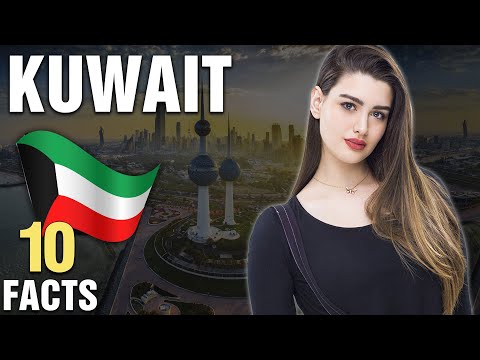
Kuwait, a small but wealthy country located at the tip of the Persian Gulf, is often recognized for its significant oil reserves. However, there is much more to this fascinating country than its petroleum-driven wealth. Here are ten surprising facts about Kuwait that shed light on its unique culture, history, and development.
#### 1. **High Currency Value**
The Kuwaiti Dinar (KWD) is the highest valued currency in the world. Due to its stable economy and significant oil exports, the dinar stands strong against the dollar and other global currencies, making it an interesting aspect of Kuwait’s economic stature.
#### 2. **A Haven for Bird-Watching**
Despite its desert landscapes, Kuwait is a surprisingly excellent spot for bird watchers. The geographical location of Kuwait makes it a vital migratory route for birds traveling between Europe, Asia, and Africa. This results in diverse species passing through Kuwaiti airspace during migration seasons.
#### 3. **Ancient Maritime History**
Kuwait has a rich maritime history and was known for its shipbuilding and maritime trade. The traditional Dhow boats used historically for these purposes are celebrated even today with festivals and races that echo the country’s historical reliance on sea-based trade.
#### 4. **Innovative Water Supply Solutions**
With no natural water resources of its own, like rivers or lakes, Kuwait relies heavily on desalination plants to supply fresh water to its population. This has led to innovative advancements in desalination technology within the country.
#### 5. **The Towers of Kuwait**
The iconic Kuwait Towers are not just tourist attractions but also serve as symbols of modern architecture in the Middle East. Designed by Swedish architects and opened in 1979, they include a viewing platform and restaurant alongside their water towers.
#### 6. **Burning Oil Fields**
During the Gulf War in 1991, retreating Iraqi military forces set fire to over 600 oil wells within Kuwait’s borders causing massive environmental damage that still impacts some areas today despite extensive reclamation efforts.
#### 7. **Generous Welfare System**
Kuwait provides extremely generous welfare benefits to its citizens including free healthcare, education up to university level, housing grants and subsidies on utility bills which reflects its commitment towards social welfare fueled by oil revenues.
#### 8. **The First Gulf Country with an Opera House**
Inaugurated in 2016, the Sheikh Jaber Al-Ahmad Cultural Centre includes an opera house – marking it as the first opera house in the Persian Gulf region – reflecting growing cultural ambitions beyond traditional norms and practices.
#### 9. **Constitutional Monarchy with Political Freedoms**
Unlike many of her neighbors in the region who have absolute monarchies or dictatorships, Kuwait operates as a constitutional monarchy with parliamentary elections held every four years where political parties though unofficially exist can influence policy making through their representatives.
#### 10. **Home to One of The Oldest Qur’ans**
Dar al-Athar al-Islamiyyah houses one of the oldest surviving complete texts of the Quran dating from around AD670-750 which signifies not only religious but also cultural heritage preserving early Islamic artifacts vital for historical studies related to Islam’s development over centuries.
These facts highlight that there’s much more depth to this seemingly small nation than meets the eye; from extraordinary contributions to art and culture through architectural wonders like opera houses or ancient texts preservation initiatives alongside modern challenges like those presented by environmental issues or innovative solutions such as advanced desalination technologies all make up what we know today as modern-day Kuwait—a land rich with contrasts awaiting exploration.
